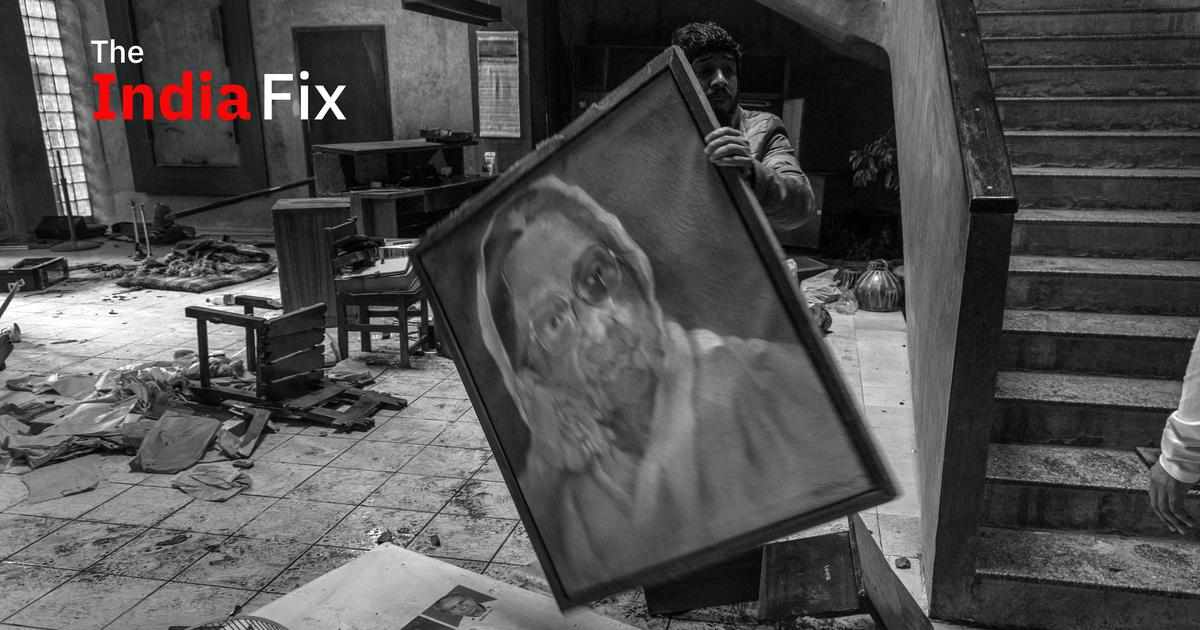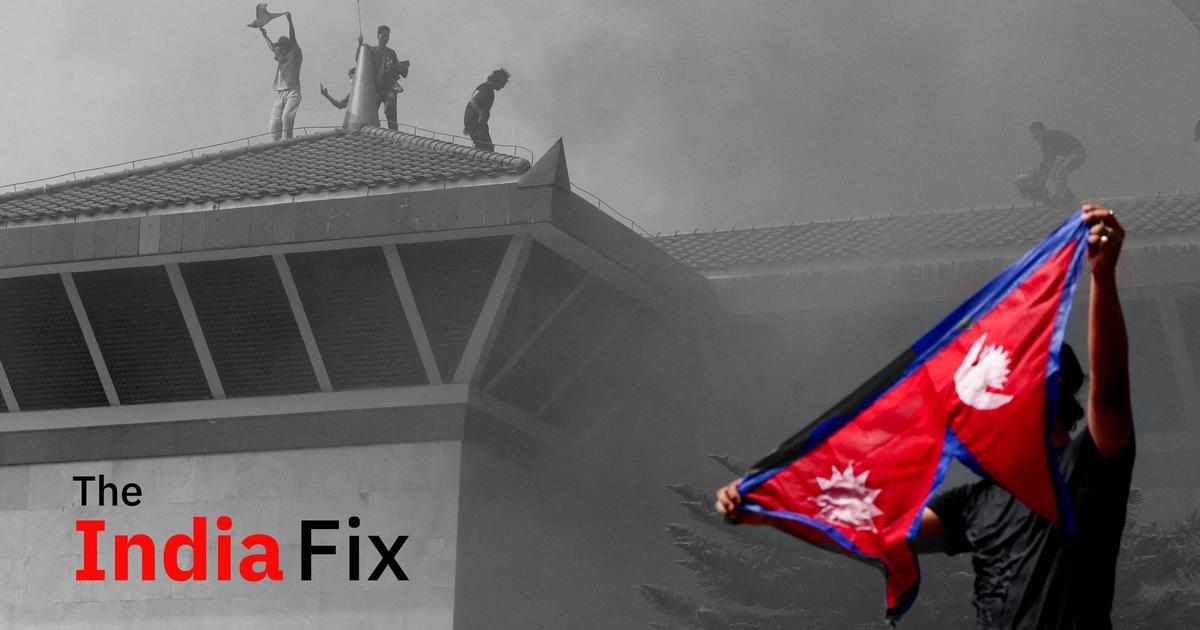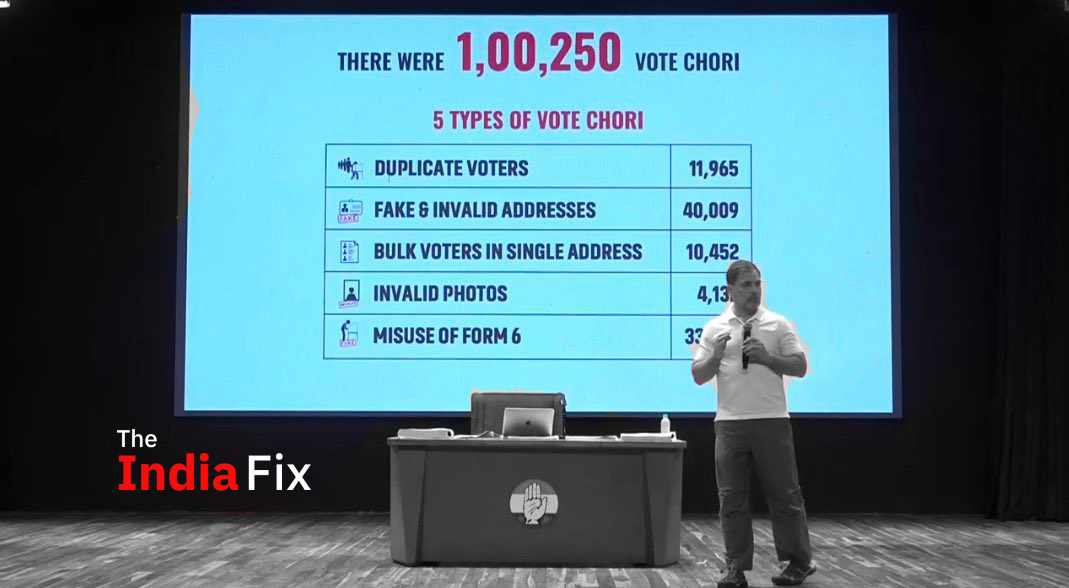
Welcome to The India Fix by Shoaib Daniyal, a newsletter on Indian politics. As always, if you’ve been sent this newsletter and like it, to get it in your inbox every week, sign up here (click on “follow”).\
Have feedback, interesting links or think I am wrong? Write to me: theindiafix@scroll.in
Elections as a system for ensuring representative governments seem, in theory, simple. Voters select a government and, if it doesn’t perform well in the eyes of enough citizens, it gets the boot and another takes its place. On paper, it is a fantastic feedback loop to keep a check on the executive and ensure it works for the popular good.
Except, in practice, the system has a number of flaws that mitigate against these aims. For one, money is not formally a part of this system but plays a massive role on the ground. Rich politicians can use expensive campaigns – in some instances in India, voters are directly paid monetary bribes – to influence elections in a way that undercuts the idea of voting on the basis of administrative performance.
Similarly, muscle plays a role. In West Bengal, for example, complaints of voters being prevented from voting or in many cases, candidates simply being blocked from contesting play a significant role in the state’s electoral system.
However, to these methods of undermining the vote, India has recently added a new and rather dark entry: gerrymandering or redrawing the boundaries of constituencies to give an advantage to a particular political party.
Cup and lip
In India, each elected representative has an equal voice in the legislature. The assumption is that each vote has an equal weight. However, what if electoral districts have their boundaries drawn in such a way as to weaken certain groups? Or what if electoral districts do not have the same approximate voter size?
This is what seems to have recently happened in the state of Assam and the newly created Union territory of Jammu and Kashmir.
In Kashmir, where new constituencies were drawn up by a panel constituted by the Centre, the delimitation process was completed in 2022. The exercise recommended a significant increase in seats for Hindu-dominated Jammu over Muslim-dominated Kashmir. In effect, a Jammu resident will now have greater representation in the Assembly compared to someone living in the Kashmir valley. The impact, critics say is quite clear: the gerrymandering will have the effect of disenfranchising Kashmiris, giving less value to their vote than if a strict one-person-one-vote principle were to be followed.
Something similar has happened in the recently concluded Assam delimitation. Here the target is the state’s Bengali-origin Muslim community who are marginalised in their state both for the ethno-linguistic as well as religious identity. As Scroll has reported, “three assembly constituencies where Muslims play a decisive role have been reserved for candidates belonging to Scheduled Castes and Tribes, effectively debarring minority leaders from contesting”.
Allegations have also been made of fixing the boundaries of constituencies to achieve, what Americans call, “cracking”: “drawing districts in such a way as to divide a concentration of specific types of voters across several districts such that they are a minority in each one, with practically no hope of achieving representation in any of the districts”.
This divvying up of Bengali-origin Muslims into separate constituencies would reduce their already low representation in the legislative assembly of Assam.
Openly communal
Assam’s chief minister did not side-step the reasons for this exercise. “The delimitation exercise will pave the way for Assamese people to have a decisive say in 92-93 seats, instead of 75-76 seats,” Himanta Biswa Sarma said on July 18.
What do these changes mean for Indian politics and its democracy?
For one, it is clear that technocratic processes in India are now fully subsumed into the pushes and pulls of party politics. The drawing of electoral constituencies should, in theory, be a technical task not subject to partisan politics. After all, it is the basis on which politics itself takes place. But that is clearly not the case anymore. The Bharatiya Janata Party is making sure that constituencies are drawn up in a way that helps it return a larger number of seats. It’s a bit like a batter in a cricket match getting to appoint the umpires.
In fact, this is not the only example of such a trend. Technocratic processes like data collection and transfer of monies to the states from the common pool of taxes is now highly politicised. In one extreme case, the BJP-led Centre has even stopped the transfer of monies to Opposition-ruled West Bengal for the National Rural Employment Guarantee Scheme thus depriving Bengal’s citizens of their legal right to work as a result of partisan political squabble.
Reduced democracy
Second, this is a significant step to entrenching India as an ethnic democracy. For some time, it has been clear that majoritarian forces in India have been curtailing minority rights. Many political scientists have termed this an ethnic democracy, where a majority community, in this case Hindus, have full rights but minorities such as Muslims reside as second-class citizens with fewer rights. Till now, much of this was legally uncoded, with examples such as state-supported violence against Muslims. Gerrymandering now legally formalises this by reducing the weight of a Muslim’s vote in Assam and Kashmir.
Third, is the fact that, till now, no matter the other faults of Indian democracy, it largely had free and fair elections. This is critical given that in India’s system, with a judiciary that rarely stops the executive when it misuses its power, elections are often the only check. Note that when Indira Gandhi imposed the Emergency in 1975, the Supreme Court quickly rubber-stamped its excesses. It was the massive defeat in the 1977 general election that acted to chastise Gandhi for the Emergency.
However, with elections itself now suspect given that gerrymandering is now, as the Assam chief minister himself claims, favouring the claims of certain communities, this check could stand significantly diluted. Governments could easily gerrymander seats in such a way that they are elected back to power even if they do not have sufficient popular support.






















Write a comment ...